HSBC 2011 Annual Report Download - page 103
Download and view the complete annual report
Please find page 103 of the 2011 HSBC annual report below. You can navigate through the pages in the report by either clicking on the pages listed below, or by using the keyword search tool below to find specific information within the annual report.-
 1
1 -
 2
2 -
 3
3 -
 4
4 -
 5
5 -
 6
6 -
 7
7 -
 8
8 -
 9
9 -
 10
10 -
 11
11 -
 12
12 -
 13
13 -
 14
14 -
 15
15 -
 16
16 -
 17
17 -
 18
18 -
 19
19 -
 20
20 -
 21
21 -
 22
22 -
 23
23 -
 24
24 -
 25
25 -
 26
26 -
 27
27 -
 28
28 -
 29
29 -
 30
30 -
 31
31 -
 32
32 -
 33
33 -
 34
34 -
 35
35 -
 36
36 -
 37
37 -
 38
38 -
 39
39 -
 40
40 -
 41
41 -
 42
42 -
 43
43 -
 44
44 -
 45
45 -
 46
46 -
 47
47 -
 48
48 -
 49
49 -
 50
50 -
 51
51 -
 52
52 -
 53
53 -
 54
54 -
 55
55 -
 56
56 -
 57
57 -
 58
58 -
 59
59 -
 60
60 -
 61
61 -
 62
62 -
 63
63 -
 64
64 -
 65
65 -
 66
66 -
 67
67 -
 68
68 -
 69
69 -
 70
70 -
 71
71 -
 72
72 -
 73
73 -
 74
74 -
 75
75 -
 76
76 -
 77
77 -
 78
78 -
 79
79 -
 80
80 -
 81
81 -
 82
82 -
 83
83 -
 84
84 -
 85
85 -
 86
86 -
 87
87 -
 88
88 -
 89
89 -
 90
90 -
 91
91 -
 92
92 -
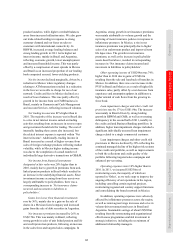 93
93 -
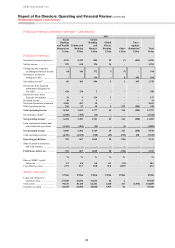 94
94 -
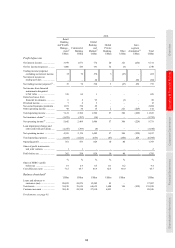 95
95 -
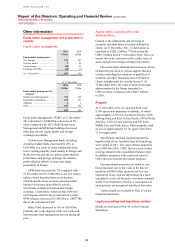 96
96 -
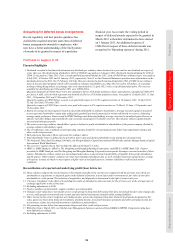 97
97 -
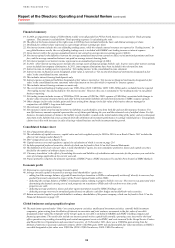 98
98 -
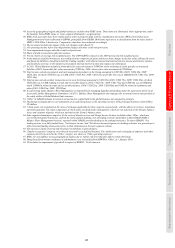 99
99 -
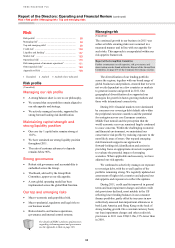 100
100 -
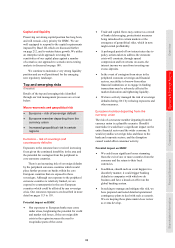 101
101 -
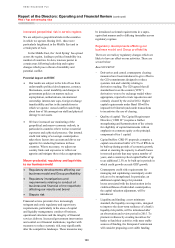 102
102 -
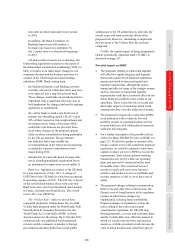 103
103 -
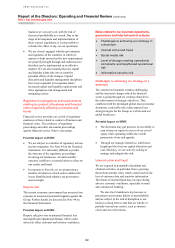 104
104 -
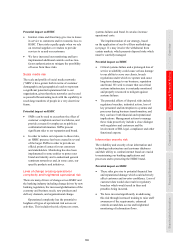 105
105 -
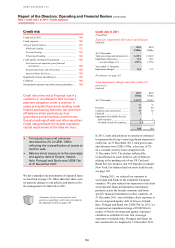 106
106 -
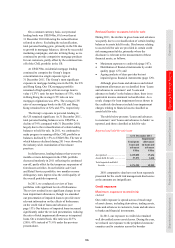 107
107 -
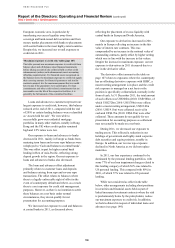 108
108 -
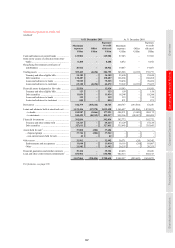 109
109 -
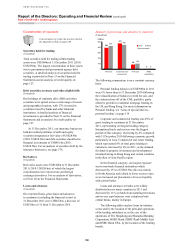 110
110 -
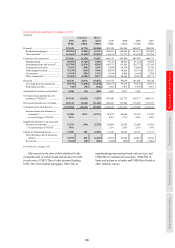 111
111 -
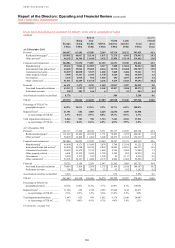 112
112 -
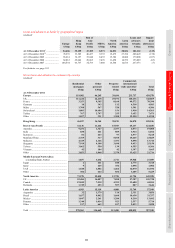 113
113 -
 114
114 -
 115
115 -
 116
116 -
 117
117 -
 118
118 -
 119
119 -
 120
120 -
 121
121 -
 122
122 -
 123
123 -
 124
124 -
 125
125 -
 126
126 -
 127
127 -
 128
128 -
 129
129 -
 130
130 -
 131
131 -
 132
132 -
 133
133 -
 134
134 -
 135
135 -
 136
136 -
 137
137 -
 138
138 -
 139
139 -
 140
140 -
 141
141 -
 142
142 -
 143
143 -
 144
144 -
 145
145 -
 146
146 -
 147
147 -
 148
148 -
 149
149 -
 150
150 -
 151
151 -
 152
152 -
 153
153 -
 154
154 -
 155
155 -
 156
156 -
 157
157 -
 158
158 -
 159
159 -
 160
160 -
 161
161 -
 162
162 -
 163
163 -
 164
164 -
 165
165 -
 166
166 -
 167
167 -
 168
168 -
 169
169 -
 170
170 -
 171
171 -
 172
172 -
 173
173 -
 174
174 -
 175
175 -
 176
176 -
 177
177 -
 178
178 -
 179
179 -
 180
180 -
 181
181 -
 182
182 -
 183
183 -
 184
184 -
 185
185 -
 186
186 -
 187
187 -
 188
188 -
 189
189 -
 190
190 -
 191
191 -
 192
192 -
 193
193 -
 194
194 -
 195
195 -
 196
196 -
 197
197 -
 198
198 -
 199
199 -
 200
200 -
 201
201 -
 202
202 -
 203
203 -
 204
204 -
 205
205 -
 206
206 -
 207
207 -
 208
208 -
 209
209 -
 210
210 -
 211
211 -
 212
212 -
 213
213 -
 214
214 -
 215
215 -
 216
216 -
 217
217 -
 218
218 -
 219
219 -
 220
220 -
 221
221 -
 222
222 -
 223
223 -
 224
224 -
 225
225 -
 226
226 -
 227
227 -
 228
228 -
 229
229 -
 230
230 -
 231
231 -
 232
232 -
 233
233 -
 234
234 -
 235
235 -
 236
236 -
 237
237 -
 238
238 -
 239
239 -
 240
240 -
 241
241 -
 242
242 -
 243
243 -
 244
244 -
 245
245 -
 246
246 -
 247
247 -
 248
248 -
 249
249 -
 250
250 -
 251
251 -
 252
252 -
 253
253 -
 254
254 -
 255
255 -
 256
256 -
 257
257 -
 258
258 -
 259
259 -
 260
260 -
 261
261 -
 262
262 -
 263
263 -
 264
264 -
 265
265 -
 266
266 -
 267
267 -
 268
268 -
 269
269 -
 270
270 -
 271
271 -
 272
272 -
 273
273 -
 274
274 -
 275
275 -
 276
276 -
 277
277 -
 278
278 -
 279
279 -
 280
280 -
 281
281 -
 282
282 -
 283
283 -
 284
284 -
 285
285 -
 286
286 -
 287
287 -
 288
288 -
 289
289 -
 290
290 -
 291
291 -
 292
292 -
 293
293 -
 294
294 -
 295
295 -
 296
296 -
 297
297 -
 298
298 -
 299
299 -
 300
300 -
 301
301 -
 302
302 -
 303
303 -
 304
304 -
 305
305 -
 306
306 -
 307
307 -
 308
308 -
 309
309 -
 310
310 -
 311
311 -
 312
312 -
 313
313 -
 314
314 -
 315
315 -
 316
316 -
 317
317 -
 318
318 -
 319
319 -
 320
320 -
 321
321 -
 322
322 -
 323
323 -
 324
324 -
 325
325 -
 326
326 -
 327
327 -
 328
328 -
 329
329 -
 330
330 -
 331
331 -
 332
332 -
 333
333 -
 334
334 -
 335
335 -
 336
336 -
 337
337 -
 338
338 -
 339
339 -
 340
340 -
 341
341 -
 342
342 -
 343
343 -
 344
344 -
 345
345 -
 346
346 -
 347
347 -
 348
348 -
 349
349 -
 350
350 -
 351
351 -
 352
352 -
 353
353 -
 354
354 -
 355
355 -
 356
356 -
 357
357 -
 358
358 -
 359
359 -
 360
360 -
 361
361 -
 362
362 -
 363
363 -
 364
364 -
 365
365 -
 366
366 -
 367
367 -
 368
368 -
 369
369 -
 370
370 -
 371
371 -
 372
372 -
 373
373 -
 374
374 -
 375
375 -
 376
376 -
 377
377 -
 378
378 -
 379
379 -
 380
380 -
 381
381 -
 382
382 -
 383
383 -
 384
384 -
 385
385 -
 386
386 -
 387
387 -
 388
388 -
 389
389 -
 390
390 -
 391
391 -
 392
392 -
 393
393 -
 394
394 -
 395
395 -
 396
396 -
 397
397 -
 398
398 -
 399
399 -
 400
400 -
 401
401 -
 402
402 -
 403
403 -
 404
404 -
 405
405 -
 406
406 -
 407
407 -
 408
408 -
 409
409 -
 410
410 -
 411
411 -
 412
412 -
 413
413 -
 414
414 -
 415
415 -
 416
416 -
 417
417 -
 418
418 -
 419
419 -
 420
420 -
 421
421 -
 422
422 -
 423
423 -
 424
424 -
 425
425 -
 426
426 -
 427
427 -
 428
428 -
 429
429 -
 430
430 -
 431
431 -
 432
432 -
 433
433 -
 434
434 -
 435
435 -
 436
436 -
 437
437 -
 438
438 -
 439
439 -
 440
440
 |
 |

101
Overview Operating & Financial Review Corporate Governance Financial Statements Shareholder Information
ratio after an observation and review period
in 2018.
In addition, the Basel Committee on
Banking Supervision will monitor a
leverage ratio based on a minimum 3%
tier 1 capital ratio over the period beginning
in 2013.
UK Independent Commission on Banking: the
forthcoming legislation in relation to the report of
the Independent Commission on Banking (‘ICB’) is
likely to require us to make major changes to our
corporate structure and the business activities we
conduct in the UK through our major banking
subsidiary, HSBC Bank, arising from:
– the likelihood that the retail banking activities
currently carried out within that entity may have
to be spun-off into a ring-fenced retail bank.
These changes would take an extended period to
implement with a significant effect on costs to
both implement the changes and run the ongoing
operations as restructured;
– the call for banks to hold a specified level of
primary loss-absorbing capital (‘PLAC’) up to
20% of their respective risk-weighted loans and
investment assets. Many of the areas which
could affect our business are precisely those
areas where changes to the proposals appear
likely or where consultation is being undertaken
by the UK government. The government
has indicated that it may modify the
recommendations in the report and is proposing
to undertake extensive consultation in two
stages during 2012;
– introduction of a non-risk based leverage ratio,
not as a binding prudential requirement but as
an instrument for supervisory review (pillar 2).
Bank levy: legislation in respect of the UK bank
levy was enacted on 19 July 2011. A charge of
US$570m for the UK bank levy has been recognised
in operating expenses in 2011. The UK levy is based
on the consolidated balance sheet at the year-end.
Bank levies have also been introduced, most notably
in France, Germany and South Korea. The overall
cost in 2011 was US$587m.
The ‘Volcker Rule’: while we do not have
segregated proprietary trading desks, the so called
Volcker Rule proposed under the Dodd-Frank Wall
Street Reform & Consumer Protection Act (the
‘Dodd-Frank Act’) could affect HSBC in North
America and across the Group. On 11 October 2011,
a proposed rule was published which generated
extensive public comment. A number of foreign
governments and other bodies have made public
submissions to the US authorities on, inter alia, the
overall scope and extra-territorial effects of the
proposed rule. However, rulemaking to implement
the provisions of the Volcker Rule has not been
completed.
G-SIBs: the capital impact of being designated a
Global systemically important bank (‘G-SIB’) is
discussed on page 213.
Potential impact on HSBC
• The proposals relating to capital and liquidity
will affect the capital adequacy and liquidity
frameworks under which financial institutions
operate and result in increased capital and
liquidity requirements, although the nature,
timing and effect of many of the changes remain
unclear. Increases in capital and liquidity
requirements could have a material effect on our
future financial condition or the results of our
operations. There is also the risk of second and
third order impacts of regulation which could
constrain the flow of credit within the economy.
• The proposed leverage ratio could cause HSBC,
as an institution with a relatively low-risk
portfolio overall, to constrain business activity
in areas which are well collateralised or possess
sufficient risk mitigants.
• For a further description of the possible effects
of the new Basel III/CRD IV rules on HSBC see
page 213. If either the quality or amount of the
Group’s capital were to fall outside the proposed
regulations, we could be required to raise more
capital or reduce our level of RWAs to meet the
requirements. Such actions and any resulting
transactions may not be within our operating
plans and may not be conducted on the most
favourable terms. This could lead to lower
returns on equity and cause some business
activities and products to be less profitable and,
in some instances, to fail to cover their cost of
equity.
• The proposed changes relating to remuneration,
bank levies and other taxes could increase the
Group’s cost of doing business in the regulatory
regimes in which these changes are
implemented, reducing future profitability.
Proposed changes in regulations such as the
rules relating to derivatives and central
counterparties regulation, the UK ICB ring-
fencing proposals, recovery and resolution plans
and the Volcker Rule may affect the manner in
which we conduct our activities and structure
ourselves, with the potential to both increase the
costs of doing business and curtail the types of
